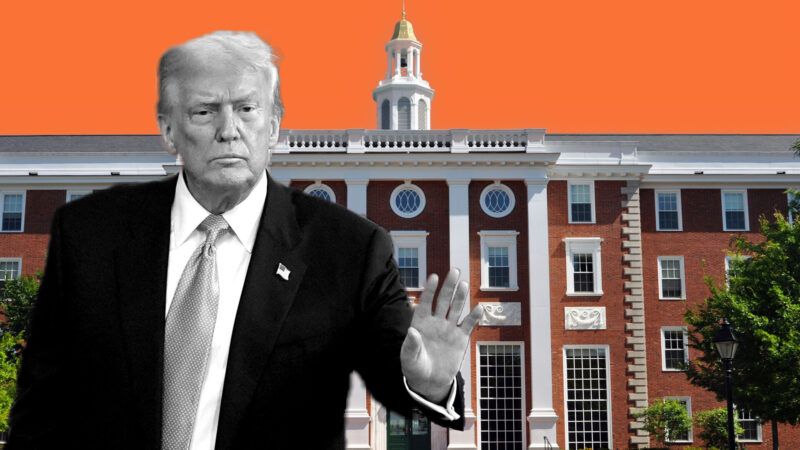Trump Administration Opens New Investigation Into Harvard, Escalating Pressure
The investigation comes only two days after a federal judge cast doubt on the Trump administration’s argument in Harvard’s lawsuit over federal funding.

Secretary of State Marco Rubio launched an investigation into Harvard University's compliance with the government-run visa program for international students and professors on Wednesday—the latest flashpoint in the ongoing feud over campus control.
In a letter reviewed by The New York Times, Rubio demanded records related to the school's participation in the Exchange Visitor Program, a program designed to promote educational and cultural exchange by bringing scholars and students to the United States for teaching and researching opportunities. "In a statement, Mr. Rubio said the investigation was aimed at verifying that the visa program does not 'compromise the national security interests of the United States,'" reported the Times.
The investigation comes only two days after Harvard argued in court that the Trump administration's retaliatory freezing of $2.6 billion in research funding violated constitutional free speech protections. The university filed suit in April shortly after it defied the Department of Homeland Security's (DHS) sweeping demands to change governance, discipline, hiring, and admissions policies to maintain federal funding.
Leading up to Monday's hearing, the government filed a brief arguing "it is the policy of the United States under the Trump Administration not to fund institutions that fail to adequately address antisemitism in their programs." But Judge Allison Burroughs of the U.S. District Court for the District of Massachusetts seemed skeptical that the administration's process and documentation were sufficient to determine whether Harvard had "taken enough steps" to address antisemitism. "It's a little bit mind-boggling," Burroughs told the government attorney. "You're saying they can terminate the contracts if the executive branch doesn't agree with the viewpoint espoused by the college?"
No final ruling has yet been made, but President Donald Trump quickly asserted that he will appeal the judge's ruling if she rules against his administration. "She is a TOTAL DISASTER, which I say even before hearing her Ruling," the president said in a Truth Social post. "How did this Trump-hating Judge get these cases? When she rules against use, we will IMMEDIATELY appeal, and WIN."
Rubio's latest investigation seems to be an attempt to maintain pressure on Harvard to yield to Trump's demands that the university conform to his agenda. Accompanying the ongoing funding dispute, DHS announced on July 9 it would subpoena the university for information on its 10,000 foreign students, and two other federal agencies—the Education Department and the Department of Health and Human Services—notified Harvard's accrediting organization that the school was found to be in violation of federal law, and therefore, no longer met the standards for accreditation. Meanwhile, Trump has threatened to have the IRS revoke Harvard's tax-exempt status—which saved the university $465 million in 2023, according to Bloomberg—and on July 4 signed the One Big Beautiful Bill Act into law, raising the tax rate on Harvard's endowment from 1.4 percent to 8 percent.
But throughout all the battling, a bigger question remains: Why does a university with an endowment of over $53 billion need government money in the first place? As Reason has previously argued, one obvious way Harvard can mitigate intrusive government interference is to eschew federal funding altogether. Another prestigious school, Yale University, seems to have taken the hint, and recently cancelled two federal grant applications because it refuses to comply with the Trump administration's rules on diversity, equity, and inclusion. To truly protect free speech and pluralism—and mitigate future legal showdowns with the executive branch—Harvard should follow suit.


Show Comments (33)